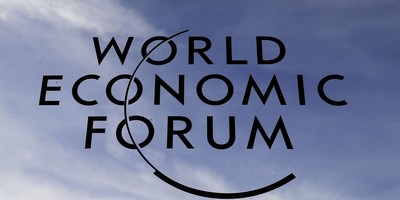Pope Benedict XVI's visit to the U.S. has afforded the American media and others an opportunity to remind us that the Catholic Church is "out of step" with modern times.
That is both a criticism and compliment -- praising with faint damnation.
What exactly about modern times would compel a pope to change his institutional mind about the fundamental belief in, say, the dignity of all human life?
The central life issue is, of course, abortion, about which even a majority of American Catholics (58 percent) differ from the church's view. Other related concerns include embryo-destructive research, cloning and assisted suicide.
The Catholic Church persists in opposing all of the above, insisting that life begins at conception, all life has value, no human being has the right to terminate the life of another. Case closed.
And, really, who would insist otherwise? In the abstract, few. In practice, millions.
Though we know that life biologically begins at conception, we've decided to disagree about when that life becomes "human."
And, though we sort of believe that all life has value, our actions suggest that we think imperfect life has less value. Increasingly, Down syndrome babies today are terminated, for instance.
If we quantify human life only according to productivity, then imperfect life inarguably is less valuable. But is it less human? Nazi eugenicists thought so. But measuring productivity requires a detached calculation -- and, inevitably, bureaucratic enforcement -- that defines inhuman.
This is not, by the way, a judgment of people who have made difficult choices. None of us really knows which path we would take until presented with the intersection that forces such contemplations.
Recommended
Finally, all agree that no human being has the right to take another's life except in self-defense. Since most abortions are for reasons other than the mother's health, our current practices are possible only if the unborn are considered "not human."
Keeping that definition alive is the trick. Human or not? Who decides?
A majority of Americans are comfortable with the view that a woman, her doctor and her God should decide. But what if there were irrefutable proof that a fetus at conception is fully human? Would we then feel that government has a role in protecting unborn life?
These questions are especially tricky for Catholics. For those who side with the pope, the answer is clear: If life is a gift of the creator, then only the creator can be the ultimate arbiter of conception (though the church does allow for limiting and spacing babies on the basis of informed conscience, just not through artificial means).
To believe in God's autonomy over human life, however, is a hard sell. How does one justify creating more mouths when so many can't be fed? My own Catholic grandmother, the youngest of 11 children, was handed over to the nuns at age 4 when her family could no longer feed her.
And yet, the nuns did feed my grandmother. And she did manage to grow up and marry and create my father, who then created me. So.
Pro-choice arguments are, nonetheless, compelling. Privacy from government intrusion, yes. Women's autonomy over their own bodies, yes. All children wanted, well, of course. But none of those testaments to logic alters the essential truth that life begins when egg and sperm commingle and that every one of us was at that far end of the life continuum before we were able to dabble in ethics and trifle with electronic keyboards.
The question is how we reconcile what is true with what is merely convenient? That we might choose a path other than the pope's is the prerogative of a free people -- and no one recognizes that freedom with greater consistency than this pope. No one has to be Catholic.
But to ask Benedict to change the church's rules to suit modern appetites and lifestyles is to ask that he forsake the sanctity of human life for the benefit of earthly delights. Those are not his concerns.
Even for non-Catholics like me, there's something comforting about a stubborn pope in a world of moral relativity. Like a strong father, he ignores his children's pleas for leniency knowing that his rules, though tough, serve a higher purpose.
If Benedict were to relent and compromise the value of human life, what would be left to debate? Perhaps only one's own time to die. And then ...
Who decides?

























Join the conversation as a VIP Member